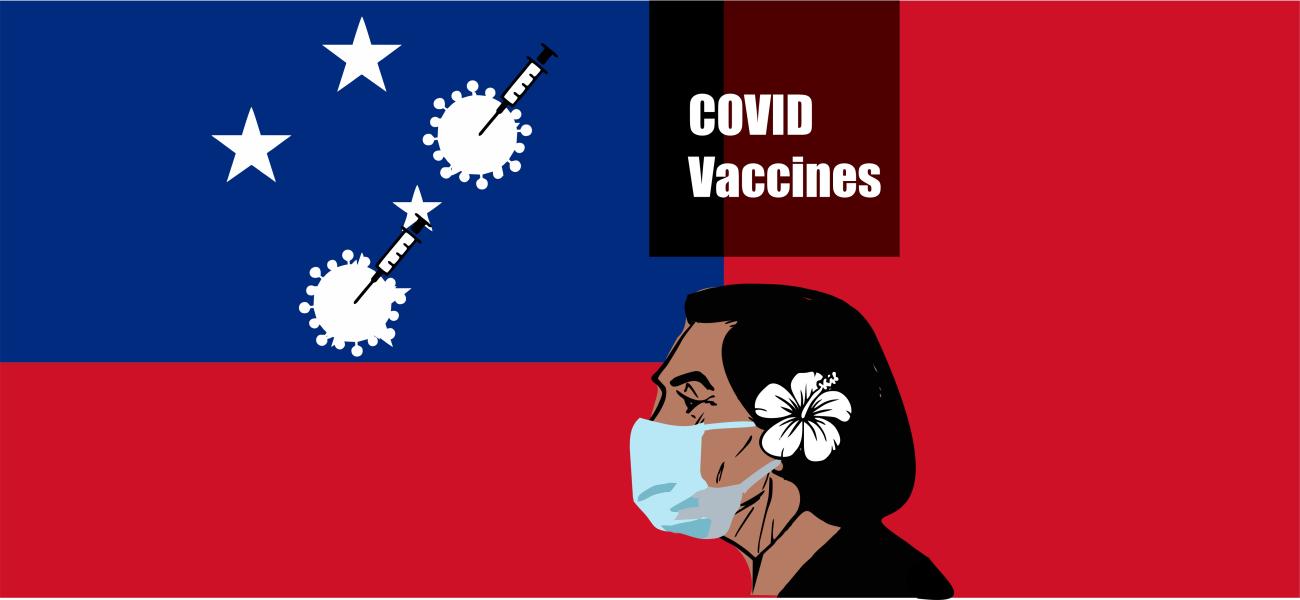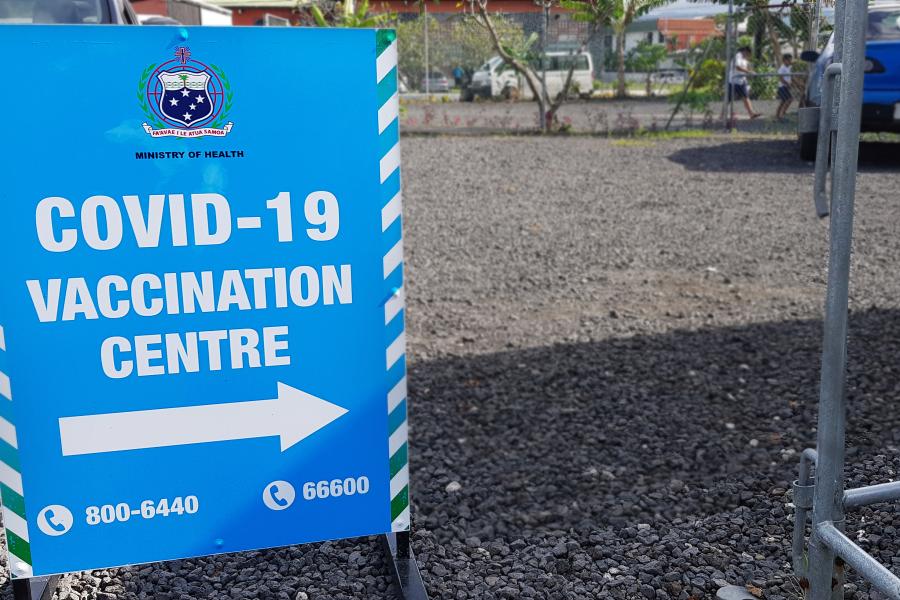Samoa offers COVID-19 vaccines to the public

Samoa’s begins immunizing those over 18 with its first batch of 24,000 vaccines – procured with UN support
Samoa celebrated an important step towards post-COVID normalcy this week as it began immunizing members of the public against COVID-19 using COVAX-funded vaccines that were received on 9 April.
Although Samoa’s vaccination programme officially began on 18 April, the government had until now prioritized those most at risk, such as frontline, border, government, health and quarantine workers.
Beginning on Monday, the vaccine was also offered to the public, with the vaccination rollout starting in the capital of Apia. Several vaccination centres have been established across the city. Vaccinations on the island of Savai’i are also underway, and teams across the country are preparing to go out to more remote villages in coming days.
The AstraZeneca shots are part of a batch of 24,000 doses delivered to the country through the COVID-19 Vaccines Global Access Facility (COVAX) – a global multilateral initiative coordinated by the United Nations, which aims to develop, manufacture and deploy COVID-19 vaccines on a fair and equitable basis.
In a press statement, Samoa’s caretaker Prime Minister, Tuilaepa Sailele Malielegaoi, recently thanked the COVAX Facility for making it possible for Samoa to get the vaccines into the country.
“Samoa has long awaited the arrival of the first doses of the Astra Zeneca vaccine as we continue to adhere to stringent prevention measures,” he said. “We are most appreciative of the support through the COVAX facility, ensuring early and equitable access to vaccines, and are deeply grateful in particular to our partners who have made the journey with us to support vaccination efforts and other crucial public health measures, in the past, now and into the future.”
The United Nations supported the government by helping in the development of a National Deployment and Vaccination Plan and thereby enabling Samoa to be one of the first countries in the region to register in the COVAX Facility. The UN in Samoa has also helped to train vaccinators and data officers for the vaccination campaign; to strengthen cold chain management systems; and to provide technical advice and support for risk communications and community engagement.
Another batch of 55,200 doses is expected to arrive from COVAX in May, with the government hoping to eventually vaccinate almost everyone over the age of 18 by procuring another 200,000 additional doses with the support of its development partners.
Although Samoa remains one of few states in the world without any community COVID cases or deaths, the vaccine is a step toward a welcome return to normalcy for the country, which has seen its economy shrink by almost nine percent in the last year due to the pandemic’s impact on the tourism industry.
“Although the government’s timely and professional response successfully kept COVID-19 outside Samoa’s borders, the global pandemic has damaged the economy, increasing unemployment, poverty and food insecurity,” said Simona Marinescu, UN Resident Coordinator for Cook Islands, Niue, Samoa and Tokelau. “Mass vaccination of the population is a first step to rebuilding the economy, bolstering tourism and restoring normalcy.”
“Border restrictions, quarantines, physical distancing, masks and hand hygiene, alongside programmes to test, trace and treat are all effective tools for keeping COVID at bay,” she said. “Vaccines are an exciting new string to our bow in the fight against this disease. I would urge all eligible Samoans to get vaccinated when they are offered the chance to do so.”
COVAX is part of the World Health Organization directed Access to COVID-19 Tools (ACT) Accelerator. It is co-led by the Coalition for Epidemic Preparedness Innovations, Gavi, the Vaccine Alliance and the World Health Organization, working in partnership with vaccine manufacturers, UNICEF, the World Bank, and others. It is the only global initiative that is working with governments and manufacturers to ensure COVID-19 vaccines are available worldwide to both lower and higher income countries in an equitable manner.



